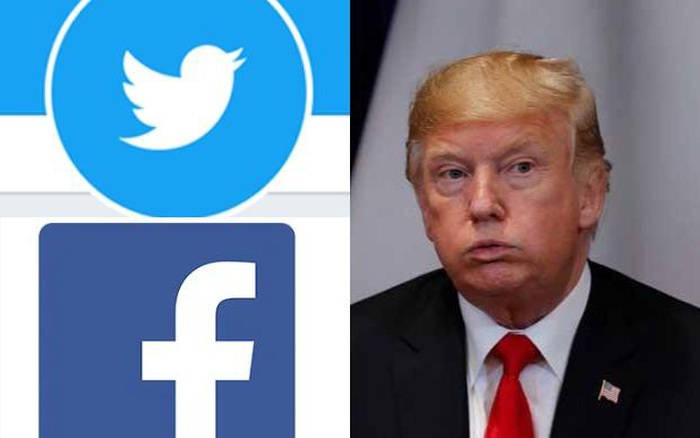The two-year suspension of former US President Donald Trump from Facebook and Instagram is being lifted, according to the social media behemoth Meta.
Trump would be permitted to return to Meta’s platforms “in the coming weeks,” according to a press release posted on the company’s website on Wednesday. Meta described the suspension as a “extraordinary decision taken in extraordinary circumstances.”
On the press release, Meta’s president of global affairs, Nick Clegg, stated that “social media is rooted in the belief that open debate and the free flow of ideas are important principles, especially at a time when they are under assault in many places around the world.”
The ban was first put into effect on January 7, 2021, the day after supporters of Donald Trump stormed the US Capitol in an effort to obstruct the certification of the 2020 presidential election, which the Republican had lost to Democrat Joe Biden.
Trump continued to distribute false information about the election results in one of his final Facebook postings before being suspended, reiterating the claim that the vote had been tainted by fraud.
Additionally, he used the opportunity to criticize Mike Pence, his vice president in charge of overseeing the vote certification.
During that time, Trump wrote, “Mike Pence didn’t have the courage to do what should have been done to safeguard our Country and our Constitution, providing States an opportunity to certify a revised set of facts, not the fraudulent or inaccurate ones which they were required to certify previously.
The substantial risk to public safety that existed in January 2021, according to Meta’s judgement on Wednesday, has diminished sufficiently.
However, Meta promised to “install new guardrails to discourage repeat infractions.” Repeat offenders face “heightened punishments” including additional suspensions that might range from one month to two years.
Additionally, citing anything that “delegitimizes an impending election,” it promised to restrict the dissemination of posts that could “add to the sort of risk that materialised on January 6” during the Capitol attack.
In the event of continued violations, Meta “may temporarily restrict access to our advertising tools.” The business claimed that “other public figures whose accounts are reinstated from suspensions connected to civil upheaval” will also be subject to same charges.
For not doing more to restrict hate speech, false material, and other infractions of its content policies, the firm has come under fire. For example, Rohingya refugees sued the owner of Facebook in 2021 over its alleged part in encouraging violence against the ethnic group in Myanmar.
In a recent incidence of far-right supporters attempting to rig an election, Meta just announced that it would remove “material that promotes or praises” the storming of government facilities in Brazil on January 8 of this year. Many people have drawn comparisons between that incident and the US Capitol riot in 2021.
However, the highest levels of government throughout the world have resisted Meta’s efforts to limit posts that contain false information, violent content, and other messages that can violate platform guidelines.
Former Philippine President Rodrigo Duterte and well-known US Republicans have both criticized Meta for removing contentious accounts and materials.
Following his expulsion from Meta and other social media platforms, Trump established his own social media business, Truth Social.
He announced his reinstatement to Facebook and Instagram in a post on his Truth Social account on Wednesday, writing: “Such a thing should never again happen to a sitting President, or anybody else who is not deserving of retaliation!”
Attorneys for the former president wrote to Mark Zuckerberg, the CEO of Meta, earlier this month to ask for his reinstatement. Trump declared his intention to seek reelection as president in 2024 in November.
In the same month, Trump was allowed to rejoin Twitter after its new owner, Elon Musk, conducted an online survey to determine whether to do so.





